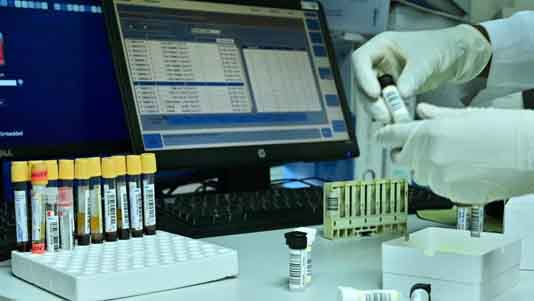MONTREAL, March 21, 2020 (BSS/AFP) – The World Anti-Doping Agency (WADA)
issued new guidelines on Friday to facilitate continued testing amid the
constraints of the coronavirus pandemic.
Noting that the spread of COVID-19 had evolved into “an even greater health
and societal emergency” since its March 6 communique, WADA urged Anti-Doping
Organizations (ADOs) to act in accordance with restrictions placed by local
health authorities “to ensure proper protection of athletes and doping
control personnel, while protecting the integrity of doping control programs,
particularly in the lead-up to the 2020 Tokyo Olympic and Paralympic Games.”
WADA’s latest guidelines advise anti-doping organizations to make sure that
sample collectors are free from any symptoms of illness.
Collectors should also ask athletes if they have any symptoms or if they or
anyone at the collection site are in the groups thought to be at heightened
risk from COVID-19.
If test collection personnel are found to have contracted the virus,
athletes they tested should be informed and vice versa, WADA said.
Protective wear such as masks should be used and work surfaces disinfected,
and if local conditions limit what testing can occur then ADOs should
“consider focusing their testing program on targeted athletes from high risk
sports and disciplines,” WADA said.
In locations where testing programs can’t continue, WADA said, it and other
anti-doping organizations and sports federations will work together “once the
situation begins to return to normal” to identify gaps in testing
“particularly as it relates to the Tokyo Olympic and Paralympic Games.”
WADA said anti-doping organizations should continue to obtain information
on whereabouts of athletes normally gathered to facilitate out-of-competition
testing.
Athletes are still responsible for obtaining therapeutic use exemptions and
“should be reminded that they can still be tested at any place, any time,”
WADA said.
With some WADA accredited laboratories already closed and others likely to
follow suit, WADA said testing organizations should contact the Montreal-
based organization for information on what labs might be able to receive
samples.
“While there are no plans to change existing requirements under the World
Anti-Doping Program, WADA fully acknowledges the complexities of this
unprecedented situation and will ensure its compliance monitoring program
provides a level of flexibility and understanding based on the
circumstances,” WADA said.



